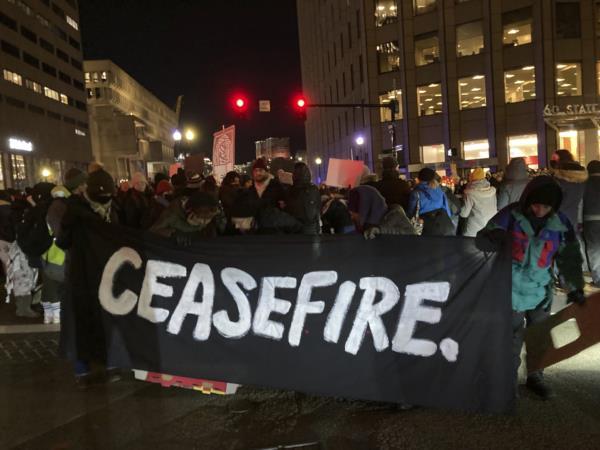
Three Israeli hostages have been freed from Gaza under a ceasefire agreement between Israel and Hamas after a dispute this week threatened to derail the deal. The hostages, Sagui Dekel-Chen, Alexandre Troufanov, and Iair Horn, were released in Khan Younis, southern Gaza, in the sixth such exchange under the truce. They appeared to be in better health than the previous hostages released, drawing relief from Israeli officials.
The men were given bags carrying memorabilia, with Horn seen carrying small hourglasses. In Tel Aviv's Hostage Square and Kibbutz Nir Oz, families gathered to watch the releases live. Israel is set to release 369 Palestinian prisoners, the largest number so far, with 333 arrested in Gaza following the October 7, 2023 attack.
A crowd of armed militants gathered in Gaza ahead of the release, near the house of slain former Hamas leader Yahya Sinwar. Hamas had accused Israel of violating the ceasefire agreement earlier in the week, prompting a response from US President Donald Trump urging Israel to cancel the deal.



Following Trump's statement, Hamas backed down, leading to the release of the hostages. The group emphasized that negotiations and adherence to the ceasefire agreement were crucial for the release of remaining captives. The three men released on Saturday had been held captive for almost 500 days after being kidnapped during the October 7 attack.
They are now back in Israel and undergoing medical assessments. Troufanov, Dekel-Chen, and Horn each had their own harrowing experiences during captivity, with Troufanov's father being killed during the attack, Dekel-Chen's wife giving birth to their daughter while he was in captivity, and Horn's brother remaining in captivity.
With 19 Israeli hostages released so far, uncertainty remains over the future of the ceasefire agreement. Negotiations on extending the ceasefire are in doubt as the conflict has resulted in significant casualties and destruction in Gaza, leading to a humanitarian crisis. The war has also escalated regional tensions, involving Iran, Hezbollah in Lebanon, and the Houthis in Yemen.







